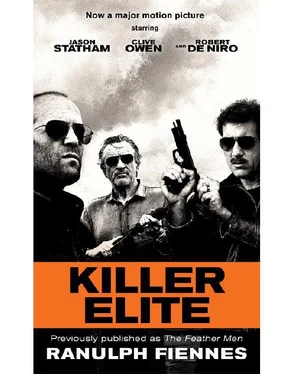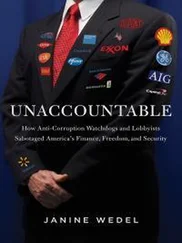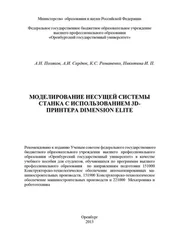Ranulph Fiennes - Killer Elite
Здесь есть возможность читать онлайн «Ranulph Fiennes - Killer Elite» весь текст электронной книги совершенно бесплатно (целиком полную версию без сокращений). В некоторых случаях можно слушать аудио, скачать через торрент в формате fb2 и присутствует краткое содержание. Жанр: Триллер, на английском языке. Описание произведения, (предисловие) а так же отзывы посетителей доступны на портале библиотеки ЛибКат.
- Название:Killer Elite
- Автор:
- Жанр:
- Год:неизвестен
- ISBN:нет данных
- Рейтинг книги:3 / 5. Голосов: 1
-
Избранное:Добавить в избранное
- Отзывы:
-
Ваша оценка:
- 60
- 1
- 2
- 3
- 4
- 5
Killer Elite: краткое содержание, описание и аннотация
Предлагаем к чтению аннотацию, описание, краткое содержание или предисловие (зависит от того, что написал сам автор книги «Killer Elite»). Если вы не нашли необходимую информацию о книге — напишите в комментариях, мы постараемся отыскать её.
Killer Elite — читать онлайн бесплатно полную книгу (весь текст) целиком
Ниже представлен текст книги, разбитый по страницам. Система сохранения места последней прочитанной страницы, позволяет с удобством читать онлайн бесплатно книгу «Killer Elite», без необходимости каждый раз заново искать на чём Вы остановились. Поставьте закладку, и сможете в любой момент перейти на страницу, на которой закончили чтение.
Интервал:
Закладка:
Three weeks passed before the judge spotted Pia. He parked the Citroen and listened to her argue with a pock-faced Moroccan.
“You are not busy,” he whined. “Three times I come by here and always you are free. Maybe you don’t like Arabs. Huh? Come on, I pay you double.” Pia’s response was negative.
“Va te faire sauter ailleurs, conasse,” shouted the frustrated Arab, moving on to a buxom brunette.
The judge edged the car forward as soon as Pia was alone on the verge.
He spoke gently. “A hundred and fifty for an hour?”
She responded at once. She was not absolutely sure about him because the cap shadowed his features. But the car was enough.
“I’m all yours, darling… let’s go.”
She led him by the hand to a tiny clearing in a thicket.
“How do you like it, m’sieu?”
He explained and was quoted an extra fifty francs. This was normal and he agreed. When both were naked but for the judge’s black socks, Pia lay on her back on a prepositioned tartan rug. She spread her legs and smiled up at her client.
Davies rehoused the CB radio. “De Villiers says the judge has taken the bait.” He closed the trunk quietly and handed Meier one of two iron bars. These he had purchased together with other farm implements from a hardware store in Dieppe a week previously.
Both men, clad in baggy, gray cotton track suits over slacks and shirts, entered the forest. Davies led without a flashlight: he knew the path well. Only that afternoon he had walked along its winding length and removed twigs for the last hundred yards and right up to the thicket. Twice he hissed at his companion. He never liked this sort of work with Meier.
De Villiers himself was quiet as a cat and quick as an adder, but Meier, short-sighted and unfit, verged on being a liability. He was, however, undeniably brilliant with technical matters: no electronic or mechanical challenge was too great. Davies had often wondered why Meier had left the Mercedes factory in Wolfsburg where he had worked as a senior research scientist for nine years. Meier had, over the years, refined various electronic and mechanical methods of untraceable murder. He was an invaluable asset to the team and could be forgiven his nocturnal clumsiness.
After five minutes Davies stopped by a solitary birch tree and raised his hand in the gloom of the forest. Both men could hear clearly the low grunts of pleasure and the ritual endearments of the travelo. Meier followed Davies closely. As always they had rehearsed the kill.
The first blow of Davies’s iron bar split open the judge’s skull. Pia’s legs were clasped together around the judge’s back and the sudden shock of her terror seemed to lock them there. Davies dragged the corpse sideways so that Meier had access to Pia’s head and chest. She recognized Davies. Her voice rasped with fear.
“Do not hurt me. Please. I have done exactly what you asked. You wanted a photograph. So take as many as you like, but I beg you, do not hit me.” Her long, white arms, already wet with the judge’s blood, stretched out in supplication.
Meier brought his iron bar straight down on Pia’s temple. She relaxed. The rest was for show: a dozen wicked blows to her silicone-filled breasts and finally-the Manson touch as stipulated by de Villiers-the writing in blood across the judge’s back.
They stood back and surveyed the scene. The corpses were still entwined. “We have done the poor girl a favor,” Davies muttered. “She had a miserable life and no future.”
He removed the judge’s wallet, keys and credit-card holder. These and the iron bars he threw into the scrub after pocketing the banknotes and credit cards. A few minutes later they were driving back to Paris to rejoin de Villiers.
The bodies were found by a lorry driver, or, more precisely, by his traveling companion, a wire-haired terrier, the following afternoon.
Patrol cars from the police districts of the eighth, sixteenth, and seventeenth arrondissements converged on the scene within minutes. The crime was classified as murder by youths in search of money for cocaine or, because of the word COCHONS crudely etched into the skin of the judge, the random work of crazed moralists. Either way an unhappy epitaph for the deceased. A government department blocked all media inquiries, perhaps because of past activities by the judge on their behalf. This was a move welcomed by the police, for the crime coincided with a good deal of criticism of moral laxity. It was yet another disgrace to the good name of France.
Some months later Minister Poniatowski launched a “clean up the Bois” operation, the effects of which lasted for a few months, and in August 1983 the head of the Paris police, Monsieur Fougere, conducted Operation Salubrite with great elan and amid much publicity. Its effects were initially severe on the travelos, but in 1991 their business was still going strong and, like royalty in London, or the girls in Bangkok, was considered no bad thing by the relevant French authorities.
4
James Mason, an Englishman, was born on June 24, 1824; where and of whom is not well documented. He gained a degree in geology from Paris University and participated in France’s bloody revolution in 1848. He became manager of the Bilbao iron mines and made a fortune from copper extraction in Sao Domingos, southern Portugal, where he owned vast estates. The King of Portugal, alarmed at Mason’s increasing influence, sent an army to reestablish royal authority. Mason’s private security force defeated the soldiers, so the King, changing tack, ennobled the Briton with the title Conde de Pomarao, a hereditary title, held to this day by his great-grandson.
Mason sank his fortune into the 4,000-acre estate of Eynsham Park, five miles west of Oxford. His only son had an affair with the King of Portugal’s daughter, married the Earl of Crawford’s daughter, was director of the Great Western Railway and in due course handed Eynsham Park to his only son, Michael.
After Eton and Sandhurst, Michael became Army Boxing Champion in 1918 and traveled to Canada for three years as a prizefighter, bootlegger and hunter. In 1938 he was recruited by the Director of Naval Intelligence and spent much of the Second World War on clandestine assignments in Europe. A great sailor and traveler, he wrote many books and became High Sheriff of Oxfordshire in 1951. He died thirty years later, leaving Eynsham Park to his eldest son, David.
Perhaps this unusual pedigree explains why David Mason was born without fear.
On Sunday, October 31, 1976, a week after the killing of Pia and the judge in Paris, Captain David Mason’s alarm clock woke him from a deep sleep in his bedroom on the first floor of Buckingham Palace. He dressed as quickly as his uniform allowed and left the palace.
Straightening his back, he walked over the gravel of the front courtyard. Above, in the cold autumn breeze, the Royal Standard fluttered to confirm that the Queen was in official residence. In fact, David knew, she had been away for some time. A gust caught at his bearskin as he emerged past the police sentry box. Instinctively he braced his lower jaw against the chin strap and cursed the fact that it did not lie below his chin at all, but sat just below his lower lip. The bearskin itself was hollow, with plenty of room for carrying loose items. The previous week one of David’s guardsmen had been caught on sentry duty with a transistor radio tuned to Radio Caroline on his head. When approached by the ensign, he had come smartly to attention and jogged the volume control. He got eight days’ detention.
Such temptations had been unknown in the less boring days when the sentry boxes were outside the palace railings. Sadly the tourists had grown more and more familiar when posing for photos-sometimes girls would strip-and even steal items of uniform. The young guardsmen could only grin and bear the indignities, so they had been brought inside the railings. Many regretted this and various lost perks. It had not been unknown for American tourists to part with good money when prompted by a veteran, speaking out of the side of his mouth, “That will be twenty dollars for the photo, sir. Just roll it up and stuff it down my rifle barrel… Thank you very much, sir. Anyone else? How about you, madam?”
Читать дальшеИнтервал:
Закладка:
Похожие книги на «Killer Elite»
Представляем Вашему вниманию похожие книги на «Killer Elite» списком для выбора. Мы отобрали схожую по названию и смыслу литературу в надежде предоставить читателям больше вариантов отыскать новые, интересные, ещё непрочитанные произведения.
Обсуждение, отзывы о книге «Killer Elite» и просто собственные мнения читателей. Оставьте ваши комментарии, напишите, что Вы думаете о произведении, его смысле или главных героях. Укажите что конкретно понравилось, а что нет, и почему Вы так считаете.












